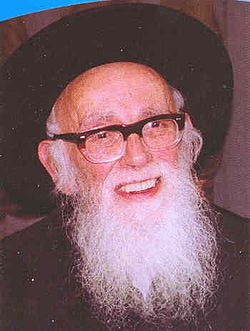Beitza 19b
1- Our Gemara quotes a Beraisa in which three Tana’im argue about whether one may bring Korbanos of Nedarim and Nedavos on Yom Tov. They also argue about when one transgresses the prohibition of Bal Te’acher (see Chart). The Tana Kama says that one may not bring a Korban Todah on Shavuos because it is Yom Tov, but he may bring it on Sukos. The Gemara explains that he means that one may bring the Korban Todah on Chol ha’Mo’ed of Sukos.

Why does the Tana need to teach that one is permitted to slaughter the Korban Todah on Chol ha’Mo’ed? It is not Yom Tov!
(סלותי מסלתינן – We touched briefly on the topic of assuming that shechting on Chol ha’Moed is actually permitted, either from a posuk, or m’drabbanan – from other gemaras).
According to Abaye, the Tana Kama teaches nothing about Nedarim and Nedavos on Yom Tov, rather his statement is intended to teach a Halachah with regard to the prohibition of Bal Te’acher – בל תאחר. Meaning that when one obligates himself to bring a Korban, he needs to fulfill his obligation within a certain amount of time.
The Tana Kama states that one who sanctified an animal as a Korban before Sukos is advised to bring it to Yerushalayim on Sukos (that is, not only may he bring it on Sukos, but he should bring it on Sukos). If he brings the Korban to Yerushalayim when he comes during Sukos, he will avoid the need to make a special trip to Yerushalayim after Sukos to offer the Korban before he transgresses Bal Te’acher.

Since he cannot bring the Korban Todah during the other festivals (he cannot bring it during Pesach because of the loaves of Chametz that accompany it, and he cannot bring it on Shavuos because it is Yom Tov and since Shavuos has no Chol Hamoed yet – but Berel is working on it), he would have to make a special trip to Yerushalayim in order to avoid transgressing Bal Te’acher. Therefore, the Tana teaches that he should bring his Korban on Sukos, during Chol ha’Mo’ed, so that he not have to make a special trip to Yerushalayim.
2- We diverged mid-Shiur to talk about the Ger Tzedek Avrohom ben Avrohom. [Thanks to Berel for bringing up this interesting topic]
Here is a brief bio from Wikipedia [with its usual skepticism] :
Abraham ben Abraham (Hebrew: אברהם בן אברהם, lit. “Avraham the son of Avraham”) (c. 1700 – May 23, 1749), also known as Count Valentine Potocki (Pototzki or Pototski), was a purported Polish nobleman of the Potocki family who converted to Judaism and was burned at the stake by the Roman Catholic Church because he had renounced Catholicism and had become an observant Jew.

According to Jewish oral traditions, he was known to the revered Talmudic sage, the Vilna Gaon (Rabbi Elijah Ben Shlomo Zalman [1720–1797]), and his ashes were interred in the relocated grave of the Vilna Gaon in Vilna’s new Jewish cemetery. Some historians who have studied his story have stated that surprisingly little evidence of Potocki’s existence has yet been discovered other than several 19th-century sources citing earlier oral histories, and they therefore consider that he most likely did not exist.

See here:
http://www.daat.ac.il/daat/kitveyet/mahanaim/hagraf-2.htm
We discussed the fascinating “misnagdisher” result of him being burned at stake:
According to Jewish tradition, following Avraham ben Avraham’s death, the Vilna Gaon believed that the spiritual constitution of the world had become altered in such a way that a Jew was no longer bound to wash his hands in the morning (netilat yadayim) within four amot (cubits) of his bed, as explicitly taught in the codes of Jewish law such as the Shulchan Aruch and other halachic works. Rather, a Jew’s entire house would be considered as four amot for this mitzvah. This custom, begun at Avraham ben Avraham’s death, commenced with the Vilna Gaon and later became the practice of the Slabodka yeshiva in Europe, becoming today the routine of many leading Israeli rabbis who follow the Slabodka tradition.
See here:
הרב שלמה זלמן אוירבך אמר שמקובל לומר בשם הגר”א שאין להקפיד בהליכה ארבע אמות לפני נטילת ידיים, כיוון שיש אומרים שלאחר מותו של הגרף פוטוצקי, שמסר נפשו על קידוש השם, נחלשה
!הקליפה מאוד

See here a fascinating related subject, by Dr. Shneier Leiman- Who is buried in the Vilna Gaon’s tomb?
3- The Graf Potozky’s undoing was, as per the story told, his rebuking a teenager for talking during Chazoras Hashatz. This lad reported him to the authorities and the rest is history…and negel vaser at the sink…….
We mentioned that the story repeated that the Alter Rebbe’s sharp words [last page of Tanya] against talking during Chazoras Hashatz using the term:
“How long will this be an obstacle for us? Have we not sufficient reproofs and troubles that have overtaken us?
בכתב יד: גוואלד גוואלד – עד מתי יהיה זה לנו למוקש ולא די לנו בכל התוכחות והצרות שעברו עלינו ה’ ישמרנו וינחמנו בכפלים לתושיה ויטהר לבנו לעבדו באמת.
— refers to the story of the Graf Potozky!
That’s a difficult story to accept. Firstly, the last page in Tanya is not referring to talking during Chazoras Hashatz. It concerns davening without kavono.
Talking during Chazoras Hashatz is sharply rebuked upon in Igeres Hakodesh # 24.
Secondly, the story of the Graf Potozky occured in 1749. The Alter Rebbe was born in 1745!
4- We moved on to the Gemara’s next discussion.
Now there is an obligation on every Yom Tov to bring a Korban shlomim to have meat for simchas Yom Tov- Shalmei Chagiga. [this is in addition to the Oilas Chagiga]
If a group is large, for all memebrs to have enough meat, they may bring another supplemental shlomim- Shalmei Simcha.
The question concerns one who has a korbon Toda to bring. Being that is a Shlomim, there will be meat from this korban to be eaten by the donor.
Can he use this Toda meat for a dual purpose -for his korban Toda and to supplement the need of eating meat on Yom Tov?
The Beraisa states that for the Shalmei Chagiga one may not since one can not do two Mitzvos with one act. Shalmei Chagiga is a distinct obligation that cannot be fulfilled with another obligation such as a korban Toda.

On the other hand, the Shalmei Simcha can be indeed combined since there is no obligation per to bring such a korban. The obligation is to have enough meat – and any means that accomplishes it is fine.
We began to discuss the issue, based on this concept, that one cannot do 2 Mitzvos with one act. We went from there to the issue of paying for an Aliya with ma’aser money. Ditto for tuition. We mentioned Tosfos who points out that according to Rashi if the person says “על מנת” first, before he took upon himself the obligation through “הרי עלי”, then it would work.
Much more next week.